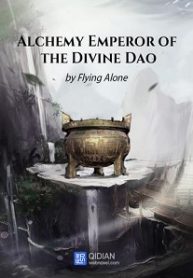The Mechanical Era - 185 Design Problems
Ezekiel walks through the front door and heads up the stairs of the building he works in. He raises his left hand and yells “Good morning” to all his coworkers as he goes. He comes to his workstation: a table with a stack of beige paper, drawers filled with pencils, quills, ink bottles, rulers, a box of chisel and tools, and such. On his left, there was another table, for a place where he can cut and mold a clay model into what he desires.
Ezekiel places down the briefcase and opens up the drawer. Inside, he takes out the large rolled beige paper and unrolls it. The paper details a sketch of the steam engine locomotive, drawn by His Majesty, Kant Maybale himself. This sketch, however, was much more detailed than the one drawn on the board.
Ezekiel was tasked by his project managers with designing the reciprocating piston engine setup, something that he has a lot more experience with. Ever since day one on the SELT project, he had been working on it for a while, drawing up an incredibly detailed drawing of all the components and mechanisms within the cylinders.
After taking one more look at the overall machine, he takes out his rolled-up blueprint from his briefcase, unrolls it, and gets to work. He also takes out the book, to help him along the way.
With his trusty pencil, ruler, and eraser by his side, he continues to work on it. He had noticed he had made several mistakes and quickly got on to fixing them first. Once he was done taking out the mistakes, he started to work on them once again.
As he was working, one of the engineers carrying a rolled piece of paper stopped right in front of his desk, and turn to talk.
“Hey, Ezekiel. We will start drawing the larger blueprint in about 2 hours. Think you can finish it in time?” his coworker questioned.
“Yes. Don’t worry about it,” Ezekiel replies with a smile.
“Alright then. Good luck. I will see you upstairs,” he replies, before walking away. After around 1 hour and 50 minutes, Ezekiel finally finishes with the blueprint. After some finishing touches, he gets up from his workstation and climbs up the stairs to the next floor.
There, he enters a large room, with a large wooden table in the middle, with a large piece of paper about the size of 4 A1 papers combined. The room itself was occupied by ‘Mechanical Engineers’ such as Ezekiel himself, and a few draftsmen who will be the ones drawing up the thing the engineers will present.
“Ezekiel! You made it! How was the piston engine? Did it give you any trouble?” asked one of his coworkers.
“No… it did not,” Ezekiel replied.
“That is wonderful. Now all we got to do, is wait till the others come.”
10 minutes pass by without a hitch. However, the room gets much more cramped as a few more people enter at the last minute. Once it was time, the project manager took out his clipboard and called the names of the engineers present.
“Jerry Smitz?”
“Present.”
“Ezekiel Berserk?”
“Present.”
This went on until the last name was called out. After confirming that everyone was present in the room, they start to get to work. The engineers start to hand out the blueprints to the draftsman,
The first engineer to hand in his blueprint was the engineer tasked with designing the framework of the locomotive, as it was where everything else would be going on there. The framework included the cabin, the area for the base on the train, the area to fit the boiler and piston, and so on.
Once the framework was drawn up, they went with the firebox next. It was the moment when the draftsmen had to draw down the firebox into the blueprint, that they first start running into problems. The firebox was considered to be small, relative to the size of the framework.
“Mr. Cole, I would like to point out that your firebox is too small.”
“What do you mean?”
“Well, I mean to say that the firebox does not fully unitize the space given to it by the framework. I think you will have to fix the measurements up.”
pαndα`noνɐ1–сoМ
“So does that mean that we cannot continue?”
“Not necessarily. We can still place in a hypothetical alternative. One that best fits the unable space, and continue on to see whether there are other components that are in need of correction,” one of the engineers spoke out.
With that, they continued on with the next few components, to see if there was anything that needed fixing. The next part of the train was brought in, the boiler blueprints. With the rather detailed blueprint in hand, the draftsman started drawing and incorporating it on the large paper.
It was then that they found out the boiler had its own problems as well. It was measured up to be, theoretically, a little bit larger for it to fit. This problem was found in the other components of the train, which all turned out to be too small or too big, relative to the other components.
It was when the engineers entered another discussion, about the exact proportions of the steam engine. In order to fit the framework, they discussed the exact proportions and measurements, and come to one agreement. They used the blackboard within the wall to discuss their ideas and communicate with each other more effectively.
A decision was then made. The rookie project managers, seeing the work that had to be gone go wrong, gave the engineers another week to finish the job. From there on out, the engineers learn to communicate with each other, to ensure each part fits the other parts of the machine. That way, minimal complications would rise.
With that, the engineers were let go. Ezekiel went back to his workstation and started to redesign the cylinder component that he was tasked with designing and incorporating to the locomotive.













